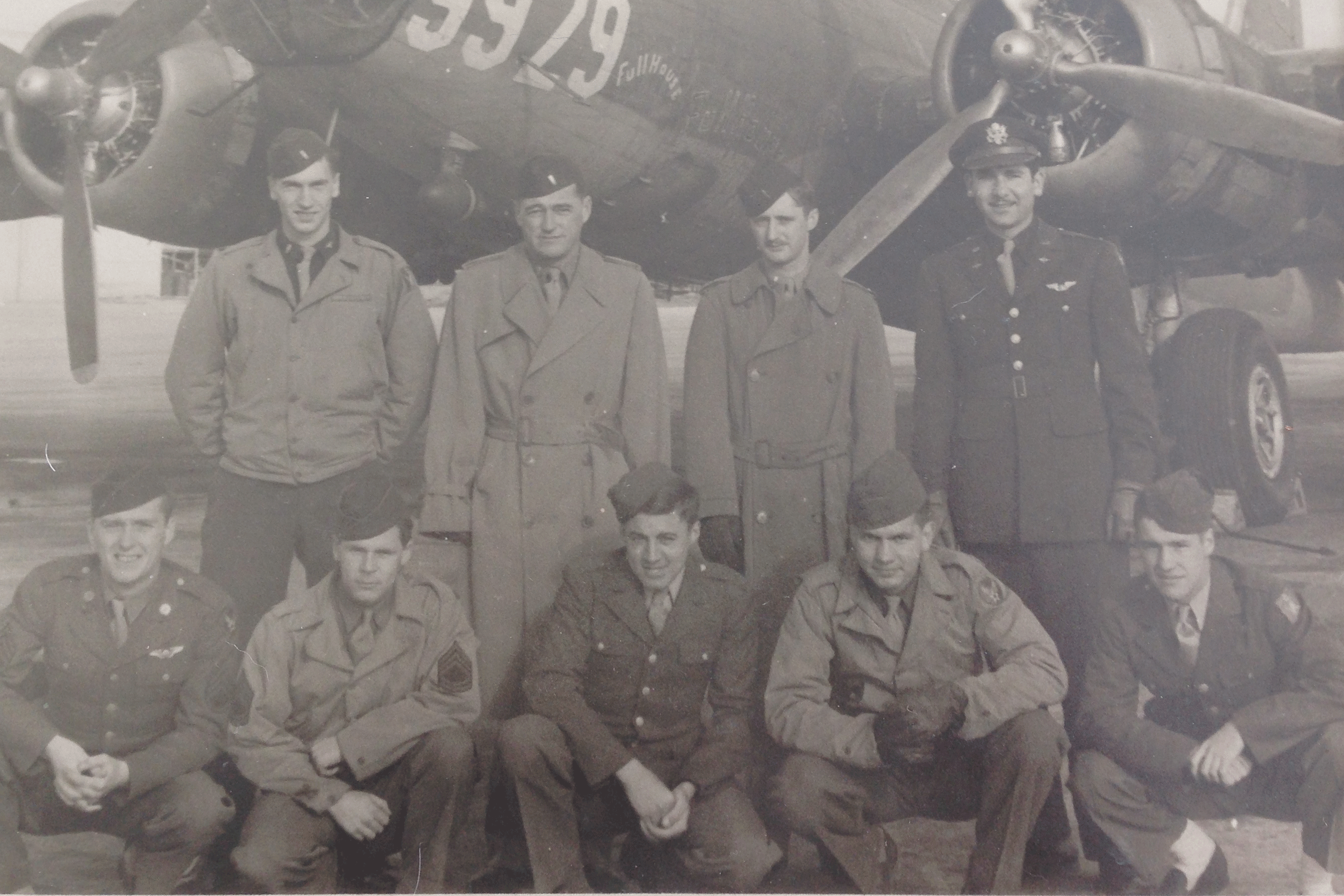Dr. Jim Kavanaugh, a graduate and former faculty member of the University of Virginia School of Medicine, flew 26 combat missions as a radio operator in the Army Air Corps and witnessed the end of World War II in Europe, all before his 20th birthday.
Now, as he nears his 90th birthday, he is sharing his experiences with a team of U.Va. students collecting oral histories of World War II, hoping they will see something of themselves in his story.
“I would like them to know that just because World War II veterans are old now, that does not mean it was a war fought by old people. Most of us were just kids from high school, just like kids from high school today,” Kavanaugh said. “Nobody at that time thought they were the greatest generation. They thought they were doing what should be done and playing their part.”
During a summer marking the 70th anniversary of V-E Day, a team of University faculty and students will record oral histories from Kavanaugh and other local veterans as part of the campaign “A Nickel for Your Story” for local non-profit ParadeRest.
Currently, the team is raising funds in a Kickstarter campaign and reaching out to local veterans for additional interviews, which will be conducted in John Paul Jones Arena recording spaces made available by U.Va. Athletics.
The memoirs will be made public and submitted to the Library of Congress as part of the Veterans History Project. As a token of appreciation, veterans will receive a 1944 Jefferson silver nickel, circulated during the war when nickel was needed to manufacture planes like the B17 bomber in which Kavanaugh served as a radio operator.
School of Medicine associate professor and ParadeRest board member Dr. Gregory Saathoff will lead the project with a team of students from U.Va.’s Critical Incident Analysis Group, where he serves as executive director.
“Really understanding the personal dynamics behind serving a country, particularly in a time of crisis, is so valuable for students to learn up front, not just through history books” as they think about their futures and how they want to lead their lives, he said.
For participating second-year student Katrina Johnson, the project hits close to home, as both of her grandfathers served in WWII but were not able to share their experiences with her.
“While I cannot hear it directly from my grandfathers, I think it is really important for our generation to understand what their generation went through and the sacrifices they made for us,” Johnson said. “It is so important not to lose these stories.”
A fellow researcher, first-year student Tyler Kernodle, sees the project as a uniquely authentic way to connect with history.
“When you look into their eyes and hear the tone of their voices as they are telling their stories, it is not like a dramatization that you see in a movie theater,” she said. “We don’t often get to learn the nooks and crannies and true emotions of what these people had to go through. Being able to dig deeply into that is very exciting for me.”
Kavanaugh, who spent his career as a child psychiatrist at U.Va., hopes that his stories and those of other veterans will help future generations seeking to understand how people react to extreme conflict. More personally, he also enjoyed showing his interview to his children and grandchildren, with whom, he said, “reviews have been unanimously favorable.”
Saathoff, himself a veteran of the first Gulf War, pointed out that families are often unaware of many details in their loved ones’ war experiences. “What this provides for families, in terms of understanding this experience in their relative’s life, makes it not only important to the Library of Congress and the American people, but also a stimulus for dinner-table conversations that might not have occurred for 70 years.”
Though the project will begin with World War II veterans, the team hopes that it will lead to further stories from veterans of more recent conflicts.
“We would like to set this up as a model that can be used to obtain other histories before it is too late,” Saathoff said. “Getting these histories into the consciousness of those around us is something that is important not just for the history of 70 years ago, but for the history of seven years ago.”
Media Contact
Article Information
April 10, 2015
/content/70th-anniversary-nears-uva-students-work-preserve-wwii-oral-histories

